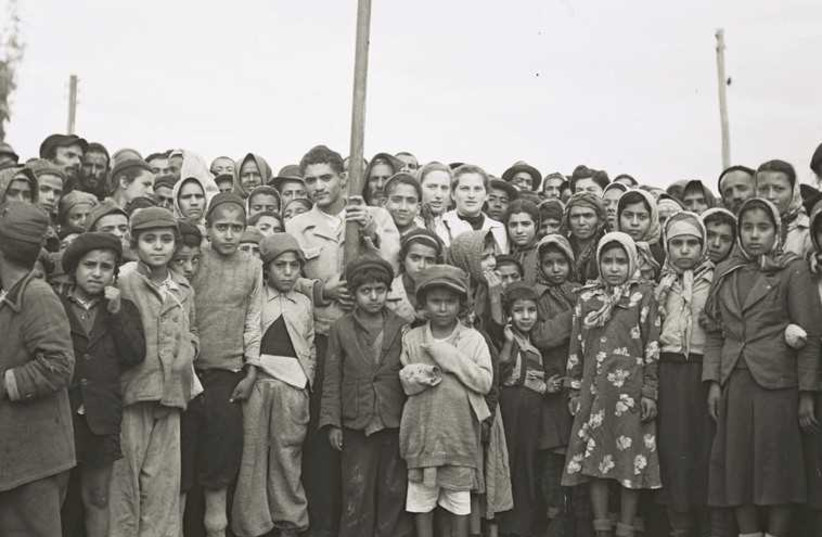Health Minister MK Moshe Arbel has appointed a new committee to examine the alleged involvement of the medical community in the disappearance of children brought by their parents from east Yemen and the Balkans in 1948-1954.
The ministry’s new panel was established in light of the criticism of the draft report written by an internal ministry team that was compiled by a student at the ministry and edited by the then-commissioner for the prevention of racism and Prof. Itamar Grotto, the ministry’s deputy director at the time.
Prof. Shifra Shvarts, a medical historian at Ben-Gurion University of the Negev in Beersheba, who was appointed to examine the draft of the report, evaluated the draft, pointing out methodological failures in its editing and research techniques.
In addition, the examination revealed gaps in facts that made it difficult to complete the work on the draft. In view of this criticism, the director-general of the office at the time decided to postpone the draft report and the recommendations and conclusions that were presented.

<strong>Hundreds of Yemenite children </strong><span style="font-size: 18.72px;">disappeared</span>
The committee’s members are its chairman, retired judge Shulamit Dotan; Prof. Shlomo Mor Yosef, former director-general of the Hadassah-University Medical Center and a specialist in gynecology; and Prof. Jacob Korach, director of the gynecology-oncology department at Sheba Medical Center at Tel Hashomer. The ministry said it will make available to the new committee all the information it needs to examine the matter.
The Amram Association has decided to regularly mark the anniversary of the death of activist Rabbi Uzi Meshulam as a day of awareness of the scandal. He fought for the recognition and investigation of the affair of disappearance of children from Yemen, the Balkans and the East.
After Meshulam barricaded himself in his home for weeks, he and his followers were able to force the government to begin investigating the alleged kidnapping of Yemenite Jewish children by the state in its early years.
The vast majority of families that appealed to the three inquiry commissions that were eventually established were of Yemenite origin (some 70%), 26% were from other Mizrahi communities (mainly North Africa, Iran and Iraq) and a minority of appeals, slightly above four percent, were submitted by families of European origin.
The inquiry commissions dealt with 1,053 cases, including 20 children from a transitional camp in Hashed, Yemen. Not all families submitted appeals to the inquiry commissions for various reasons – from shame and desperation to a complete lack of trust in the establishment. The latest research by Dr. Nathan Shifriss, a Hebrew University historian who has devoted many years to investigating and documenting the affair, cited over 2,000 names of missing children.
“Distancing infants from their mothers – even the healthy ones – was clearly detrimental to their wellbeing and health,” the Amram Association said.
It added that “the traditional care methods of Mizrahi mothers – breastfeeding according to the wishes of the infant, constant and prolonged physical contact, and one-on-one treatment for the first months are presently recognized and recommended by major health organizations throughout the world.
“When parents came to visit their children, they were told they had died. The parents were forcefully removed from the premises, often by police officers, and were forbidden to stay with their children in the hospitals and nurseries. Separating infants from Mizrahi families, especially Yemenite families, was an official, well-documented policy in the immigration camps. Having said that, keeping the children in nurseries, away from their parents, was a unique policy, imposed exclusively in Yemenite immigration camps.”
From the moment the children were taken away and put in nurseries, the Kedmi Commission’s final report determined that the separation of children from their parents was the responsibility of the authorities operating in the camps: “Those responsible for the lack of procedures and regulations to ensure continued contact between parents and their children and means for locating and reporting if necessary, are responsible for the creation and growth of the phenomenon of disappearing children.”
